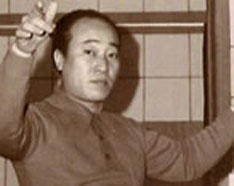본문
Jecheon Film Music Award
Jecheon Film Music Honorary Award
-

- Choi Chang-Kwon
- Film Music Director, Composer | Korea (1934~2008)
- Film music must be recognized as a new form of composition on par with those formed earlier in the world of music. – Gerald Pratley
- The above quote by Gerald Pratley appears in the book *The Technique of Film Music* written by Roger Manvell and John Huntley. In 1987, Music Director Choi Chang-Kwon translated the book, and it was published by the Korean Film Council as the first specialized film music publication introduced in Korea. Today, interest in film music has grown, and various books are available, but at that time—and for a long while—it remained the only professional reference for those curious about film music. Choi Chang-Kwon's name has been an essential part of Korean film music since he began his career in 1966. Born in 1929 in Pyongyang, he dropped out of the composition department at Seoul National University's College of Music, went on to work with the Yegrin Orchestra, and served as the conductor of the TBC (Tongyang Broadcasting Company) Radio Orchestra. His debut in film music came with the 1966 film *The Blues of Glory*, starring Tae Hyun-sil. Over the next 30 years, he composed for over 110 films, contributing to many masterpieces of Korean cinema. His work includes well-known pieces like *Robot Taekwon V*, *Road to Sampo*, *The Door*, *Mother*, and *The Lost Migratory Bird*, which gained popularity with Choi Hee-joon's theme song. He was also a major force in youth films like *High School Joker*, and in traditional-themed films such as *The Old Potter* and *The Shaman Story*. Choi not only contributed to film music but also pioneered musical theatre in Korea, serving as head of the Mirinae Musical Center, director of the Seoul Metropolitan Musical Troupe, and the founding president of the Korea Musical Association. His works such as *Secret Visit*, *Padam Padam Padam*, and *A Love Song in a Peanut Shell* opened up new possibilities for original Korean musicals. As a living testament to the history of Korean film music and original musicals, Music Director Choi Chang-Kwon will always be remembered. (By Jun Jin-su)
| Year | Title | Director |
|---|---|---|
| 1966 | The Bride Born in the Year of the Horse | Kim Ki-duk |
| 1967 | The Lost Migratory Bird | Kim Soo-yong |
| 1969 | The Old Potter | Choi Ha-won |
| 1970 | Do You Know That Woman? | Lee Sang-eon |
| 1972 | The Shaman Story | Choi Ha-won |
| 1975 | Road to Sampo | Lee Man-hee |
| 1976 | Robot Taekwon V | Kim Cheong-gi |
| 1976 | High School Joker | Seok Rae-myeong |
| 1977 | The Door | Yu Hyun-mok |
| 1977 | Toward the High Place | Lim Won-sik |
| 1977 | Under the Sky Without Mom | Lee Won-se |
| 1977 | Burial Mound | Lee Doo-yong |
| 1978 | Seaside Village | Kim Soo-hyeong |
| 1978 | Once Upon a Time, Hoo-ee Hoo-ee | Yu Hyun-mok |
| 1978 | My Mother and the Lodger | Jo Moon-jin |
| 1981 | The Tree That Blossoms Love | Ko Eung-ho |
| 1981 | The Invited | Choi Ha-won |
| 1985 | Ppong | Lee Doo-yong |
| 1990 | Road to Cheongsong | Lee Doo-yong |
| 2002 | Arirang | Lee Doo-yong |
| 2007 | Robot Taekwon V (Digital Restoration) | Kim Cheong-gi |


















































